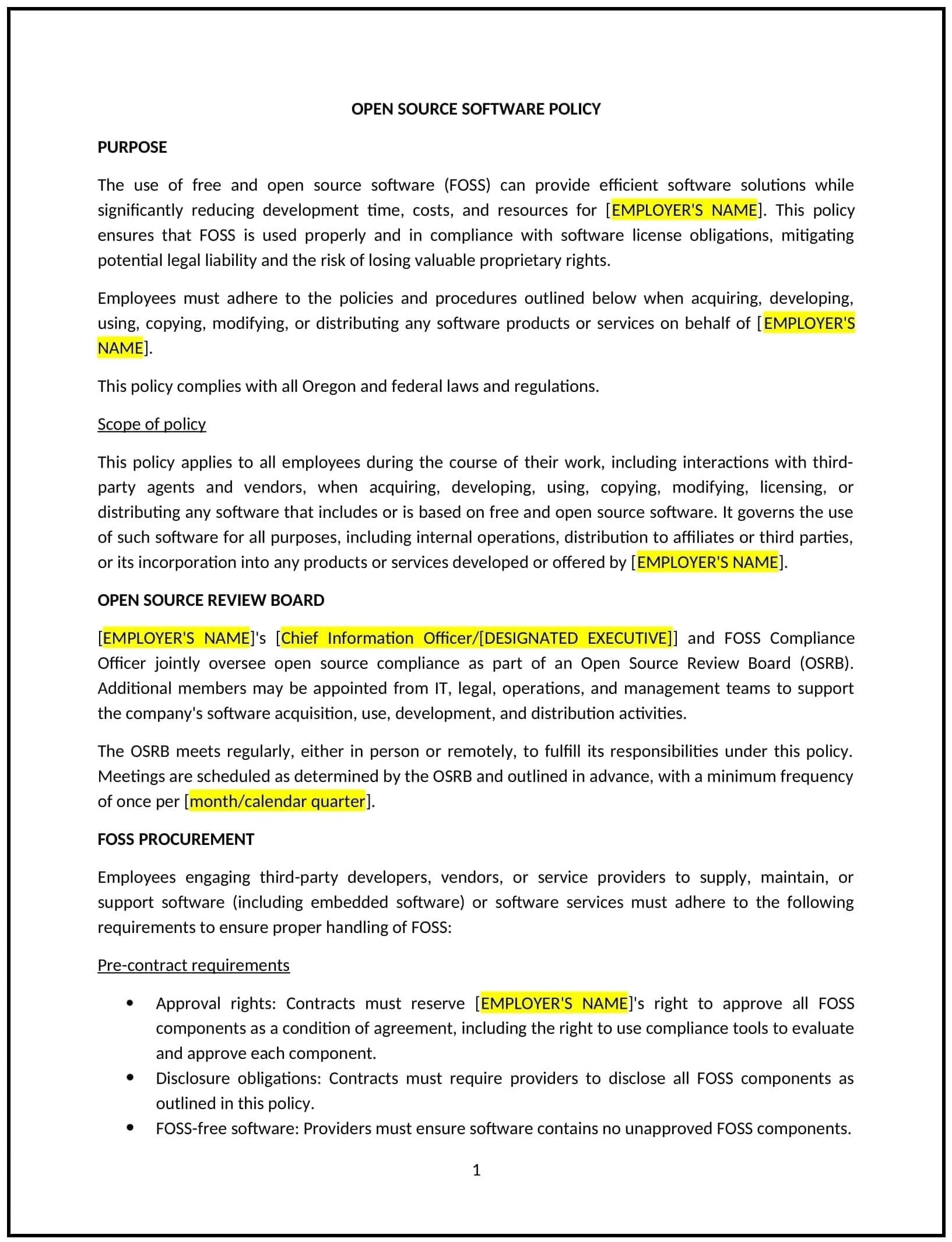Open source software policy (Oregon): Free template
Got contracts to review? While you're here for policies, let Cobrief make contract review effortless—start your free review now.

Customize this template for free
Open source software policy (Oregon)
This open source software policy is designed to help Oregon businesses manage the use of open source software in their operations. It outlines guidelines for selection, licensing, and compliance with open source software requirements.
By adopting this policy, businesses can leverage open source software effectively while minimizing legal and security risks.
How to use this open source software policy (Oregon)
- Define open source software: Clarify what constitutes open source software and its benefits.
- Establish selection criteria: Outline factors for choosing open source software, such as functionality, security, and licensing terms.
- Address licensing compliance: Specify requirements for complying with open source software licenses, such as attribution or sharing modifications.
- Monitor usage: Regularly review the use of open source software to ensure compliance with the policy.
- Train employees: Educate staff on selecting and using open source software responsibly.
- Review and update: Assess the policy annually to ensure it aligns with evolving technology and legal requirements.
Benefits of using this open source software policy (Oregon)
This policy provides several advantages for Oregon businesses:
- Reduces costs: Leverages free or low-cost open source software for business operations.
- Enhances flexibility: Allows customization and adaptation of software to meet specific business needs.
- Promotes compliance: Ensures adherence to open source software licensing requirements.
- Minimizes risks: Reduces the potential for legal disputes or security vulnerabilities related to open source software.
- Supports innovation: Encourages the use of cutting-edge technology and collaborative development.
Tips for using this open source software policy (Oregon)
- Communicate clearly: Share the policy with employees and include it in onboarding materials.
- Provide training: Educate staff on selecting and using open source software responsibly.
- Monitor compliance: Regularly review the use of open source software to ensure adherence to the policy.
- Address issues promptly: Take corrective action if open source software is used improperly or without compliance.
- Update regularly: Revise the policy as needed to reflect changes in technology or legal requirements.